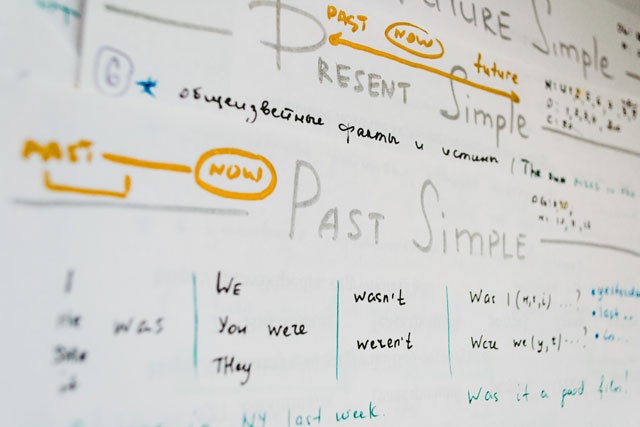Course Description
'Creative Writing 101' is an attempt to capture what cannot be held in hand or thought--the elusive riddle of human creativity as we find it in our writing. Here we look at various forms and genres (books, dramas and plays, poetry, essays, film-writing, stories in general, etc.) as they relate to the creative impulse.
We also talk about the Writer's Voice and personality, writing as therapy, illusions about writing, legend and mythos, and other areas where a creative writer may find inspiration, advice or enlightening conjecture. This self-paced course is offered to writers everywhere with hat-in-hand, for what it may be worth. Test and review questions, and also lesson exercises are included at the end of each lesson to build mastery.
What is that something? Anyone who knew would be the world's greatest living author. The search, though, is half the fun, and that is really what we are presenting here. Your artistic capacities are not illusions or mere ego. Whether you are a beginner or a professional, your artistic talent is a gift of your human nature, just like your smile, the way you walk, and things like your ability with math or your knack for a musical instrument. Our passage on Earth is short. To seek and find that something within yourself that we call "creativity" is to link with the Divine, the ultimate Creator if you are religious. So maybe there is something there.
Creativity is important in so many areas of life. Sometimes, when we are creative outside of the norm, such as making the choice to rob a bank, our inventive ways are disastrous. A child might mix some household chemicals just to see what happens, and right before the kitchen explodes, the child's mother snatches the dangerous combination away with a sigh of relief. On the other hand, it also is true that throughout the long story of humankind, our curiosity, our necessity and innate ability to dream, and our vision of things unformed and shapeless has saved us from many troubles and improved the quality of life for billions. That is creativity, too.
So we nurture this precious flame. We hold it dear, we coddle and cajole, we muse. We protect our creativity, give it health, and encourage ourselves as we choose. Encouragement is something writers need perhaps more than other artists because, unlike a dance, song, or sculpture, written works require time and effort to be read. They have to be printed or published in some way, and your artistic feedback loop is considerably different from that of Al Pacino, who gets his warm fuzzies from a full-house audience applauding wildly when he performs on stage. It can take years of work before anyone, anywhere, even acknowledges that you are, in fact, a writer of some kind. But that flame, so bright and urgent in compassionate love, creates an urge to put words to paper that you just cannot resist.
How do we nurture creativity? Knocking yourself on the head is one way that works for a majority of serious writers. Seriously, however, we are talking about a mental process, something even the Buddhist spiritual leader, the Dalai Lama, admits he does not understand. Great mystics of the past, including Saint Francis of Assisi, Mahatma Gandhi, and various yogis, gurus, and Brahmans, do not understand it, either. It is much more like nurturing your whole person, your entire being, your whole view of life or way of participating in things going on. It is not pulling creativity itself out of a secret place, taking a quick look at it, analyzing it to death, and then expecting it to still function in the way we want. It really cannot be known, and in a sense it really does not even belong to you. Nurturing creativity in writing is nurturing yourself and your own sacred inner life.
Here is a creative description of that: It is funny that they call it typing when in fact it is mostly writing that is happening. One could call it highly organized, alphabet peck-work. Twenty-six letters to infinity; you have to be pretty creative to get an art form out of that. In the realm of ideas, though, innovation is not a fraud. It is the flow of life and movement and "beingness" happening constantly to every one of us alive. It is thesis, antithesis, synthesis, and recombining reality with words into something new for yourself and others.
What is creative writing? In a word: fun!
- Completely Online
- Self-Paced
- Printable Lessons
- Full HD Video

- 6 Months to Complete
- 24/7 Availability
- Start Anytime
- PC & Mac Compatible
- Android & iOS Friendly
- Accredited CEUs

Learning Outcomes
- Define ways to develop personal creativity in writing.
- Describe various written forms and define the creative flow.
- Demonstrate creativity through easy essays.
- Describe dramatic forms.
- Demonstrate your personality in your writing.
- Compare and contrast writing a novel versus writing a short story.
- Describe how writing can be therapeutic.
- Demonstrate mastery of lesson content at levels of 70% or higher.
Assessment Guide
| Assessment | Points |
|---|---|
| Introductions | 1 points |
| Lesson 1 Creativity in Writing | 20 points |
| Lesson 1 Exam | 7 points |
| Lesson 2 Creative Forms of Writing | 20 points |
| Lesson 2 Exam | 7 points |
| Lesson 3 Assignment A | 30 points |
| Lesson 3 Assignment B | 20 points |
| Lesson 3 Assignment C | 20 points |
| Lesson 3 Exam | 75 points |
| Lesson 4 Assignment A | 30 points |
| Lesson 4 Assignment B | 10 points |
| Lesson 4 | 50 points |
| Lesson 5 Stories and Fictions | 50 points |
| Assignment 5A | 20 points |
| Lesson 5 Exam | 9 points |
| Lesson 6 Assignment A | 30 points |
| Lesson 6 Assignment B | 30 points |
| Lesson 6 | 44 points |
| Lesson 7 Assignment A | 30 points |
| Lesson 7 Assignment B | 25 points |
| Lesson 7 | 54 points |
| Lesson 8 Assignment A | 20 points |
| Lesson 8 Assignment B | 30 points |
| Lesson 8 Exam | 42 points |
| Lesson 9 Exam | 8 points |
| Lesson 10 Assignment A | 30 points |
| Lesson 10 Assignment B | 10 points |
| Lesson 10 Assignment C | 25 points |
| Lesson 10 | 9 points |
| Lesson 11 False Ideas About Writing | 35 points |
| Lesson 11 Exam | 6 points |
| Lesson 12 Assignment A | 25 points |
| Lesson 12 | 52 points |
| Lesson 13 Assignment A | 15 points |
| Lesson 13 Assignment B | 15 points |
| Lesson 13 Assignment C | 25 points |
| Lesson 13 | 7 points |
| Lesson 14 Assignment | 35 points |
| Lesson 14 Exam | 4 points |
| Lesson 15 Assignment A | 15 points |
| Lesson 15 Assignment B | 25 points |
| Lesson 15 Assignment C: Final Assignment | 25 points |
| Lesson 15 Final Exam | 4 points |



















